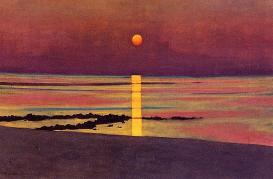The possibility of collapse is an opportunity for existentialism to reinvent itself. Yet this renewal presupposes deep transformations, deeply new ways of thinking about the experience of being human. The link between groundlessness and freedom, or between the fact that we alone confer a sense on our existence and the role that our being-towards-death plays in our ability to live a more authentic life, remains relevant. Likewise, by turning to experience as the grounding and principled factor, existential phenomenology goes beyond the dualism subject/object, me/world, me/others, and even, in Merleau-Ponty, existence/life. It refreshes our understanding of our being-in-the-world in a way that could change our relation to nature. However, its anthropology is still anthropocentric, and our freedom is often conceived as a wrenching away from nature.
Moving from a philosophy of existence to a phenomenology of the (co)habitation of the Earth, this project now elaborates an eco-phenomenology that goes one step further. Instead of simply focusing on our earthly condition, as in Merleau-Ponty’s The Visible and the Invisible, which describes the interweaving between the touching and the touched and shows that our experience of nature is characterized by participation, I take into consideration the marine element, its strangeness, and the precedence of the sea over the Earth. In this way, the project reconsiders the link between our relationships with nature and life and the experience of our limits.

